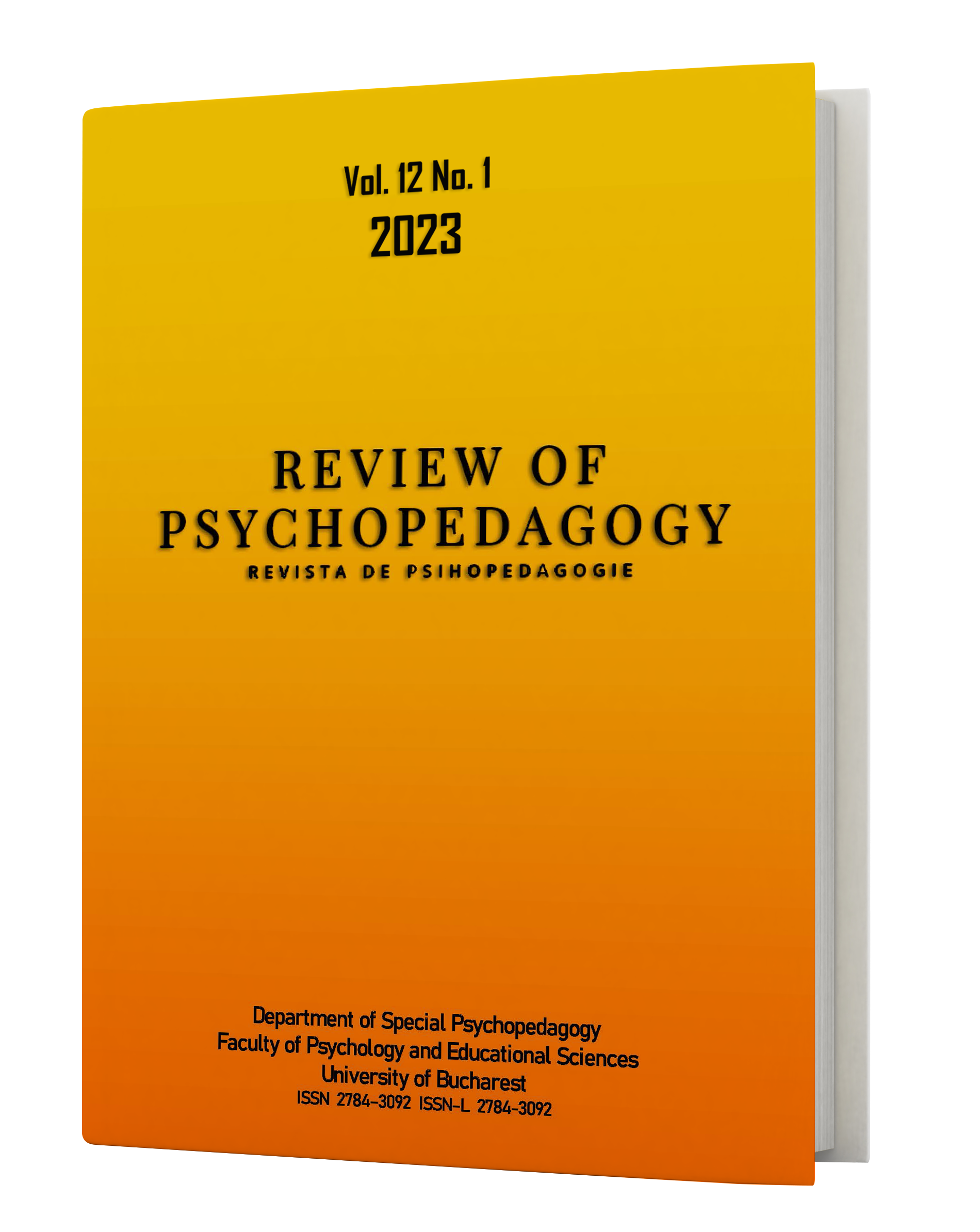Well-being in adolescents with and without visual impairments
Well-being in adolescents with and without visual impairments
Author(s): Alina Chiracu, Cristian Buică-BelciuSubject(s): Educational Psychology, Personality Psychology, Psychology of Self, Inclusive Education / Inclusion
Published by: Universitatea din București, Facultatea de Psihologie și Științele Educației, Departamentul Psihopedagogie Specială
Keywords: visual impairment; adolescents; peer attachment; loneliness; secure attachment; self-esteem; well-being;
Summary/Abstract: The present study has two main objectives. First, to analyze the differences between adolescents with visual impairments and those without visual impairments in terms of peer attachment, loneliness, self-esteem, and well-being. Secondly, to investigate the relationships between these variables among adolescents, starting from the premise that peer attachment is negatively associated with loneliness, which in turn is negatively associated with well-being. At the same time, self-esteem moderates the relationship between peer attachment and well-being. A number of 80 adolescents participated in the study, of which 40 with visual impairments and 40 without visual impairments, aged between 17 and 18 years, M = 17.58, SD = .50. The instruments used were Index of Parents and Peers Attachment, UCLA Loneliness Scale, Rosenberg's Self-Esteem Scale, and Oxford Happiness Questionnaire. The results showed that, unlike adolescents without visual impairments, those with visual impairments report lower levels of peer attachment, self-esteem and well-being, and higher levels of loneliness. Loneliness also mediates the relationship between peer trust/peer alienation and well-being, and self-esteem moderates the relationship between peer communication and well-being. Possible ways of increasing self-esteem and well-being among adolescents with visual impairments, as well as reducing feeling of loneliness, are discussed. At the same time, intervention models are proposed to improve the well-being of adolescents by implementing psychoeducational programs to increase the level of socialization, alleviate loneliness and increase self-esteem.
Journal: Revista de Psihopedagogie
- Issue Year: 12/2023
- Issue No: 1
- Page Range: 42-53
- Page Count: 12
- Language: English

